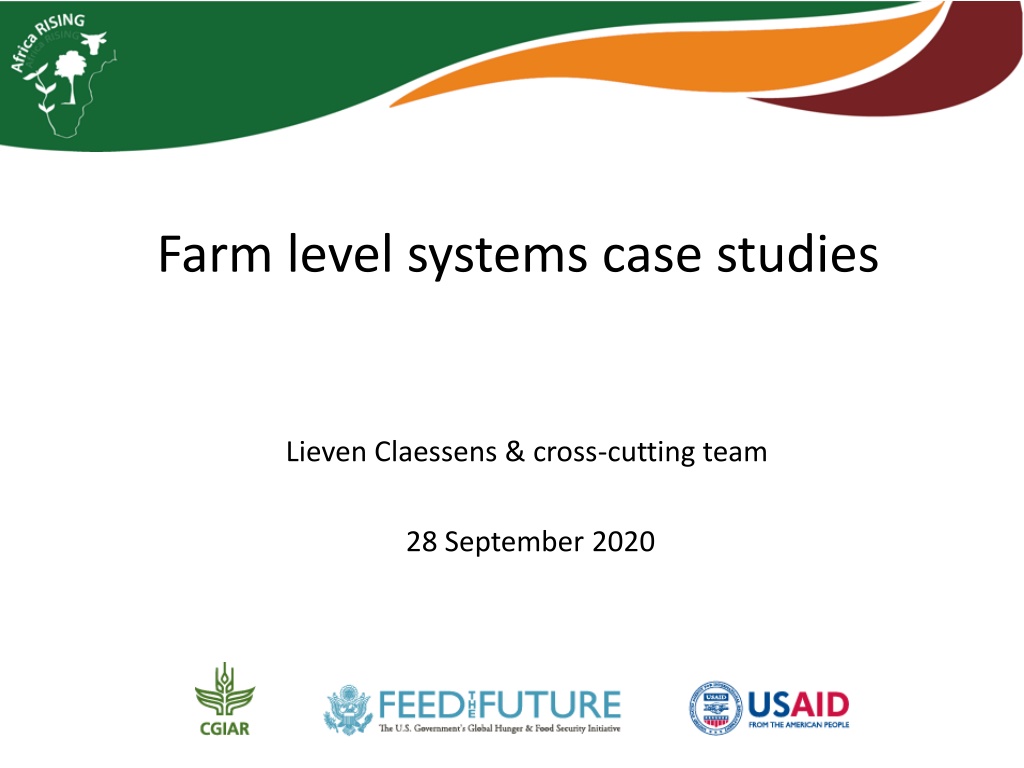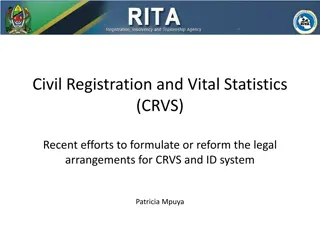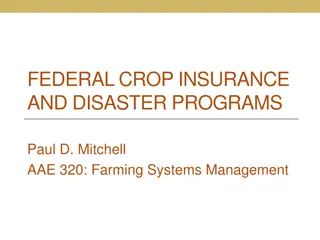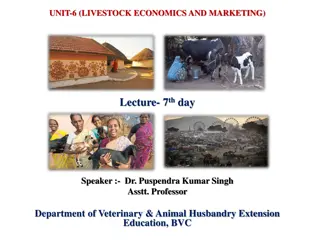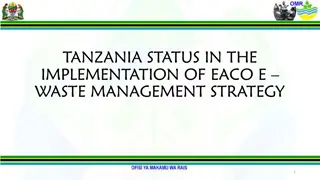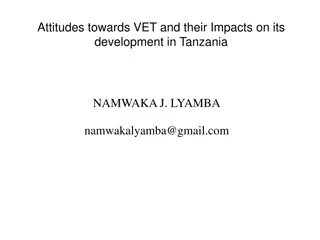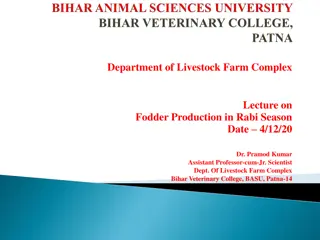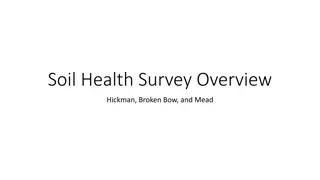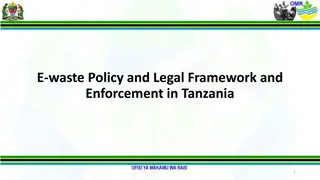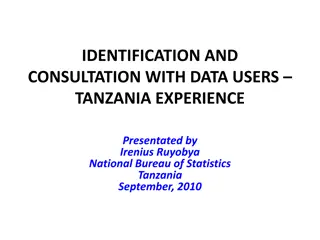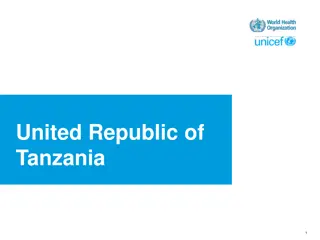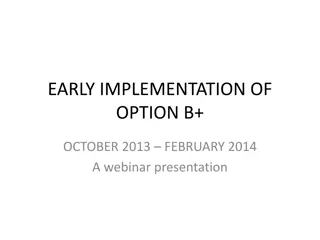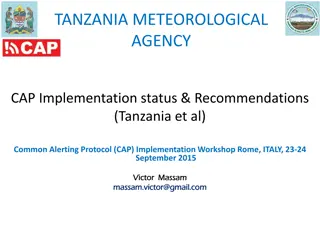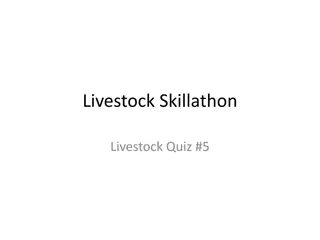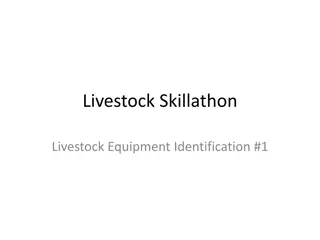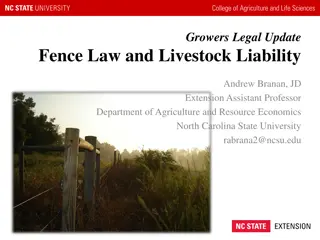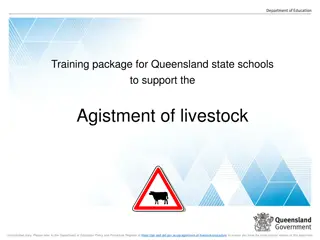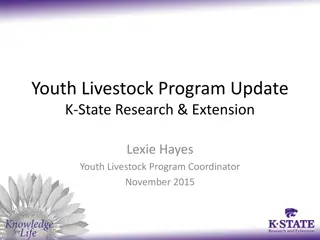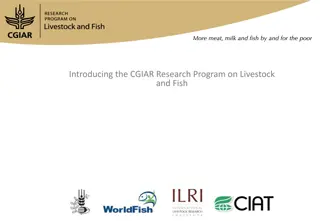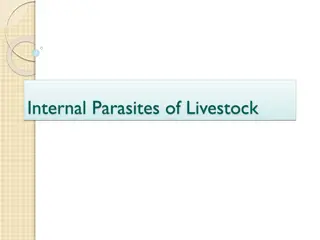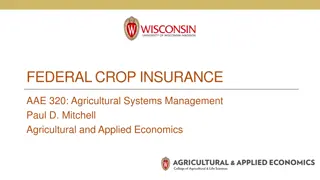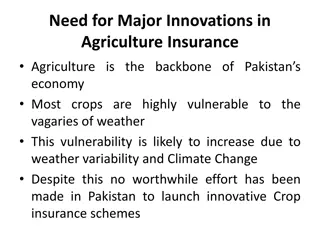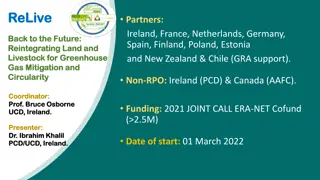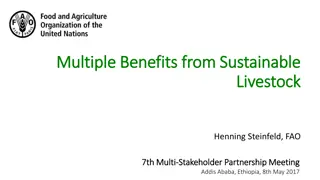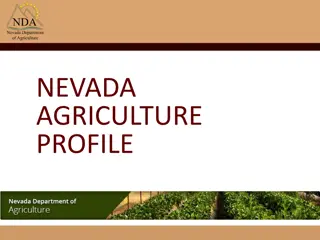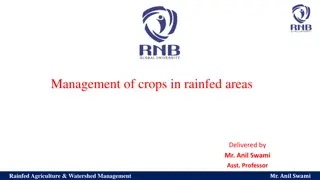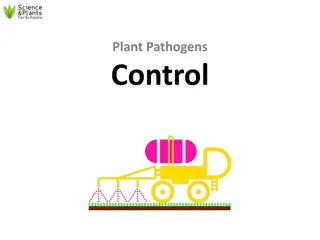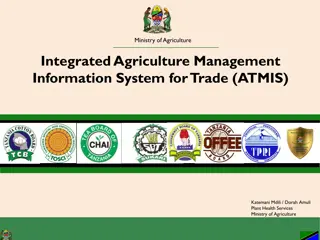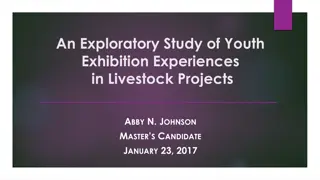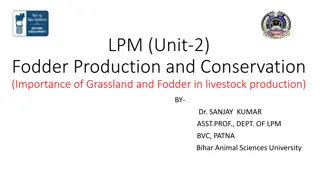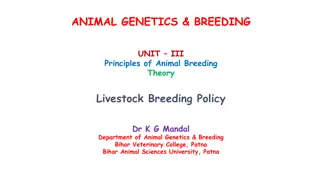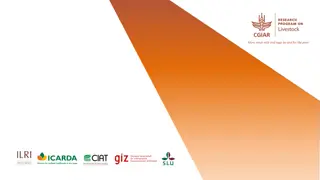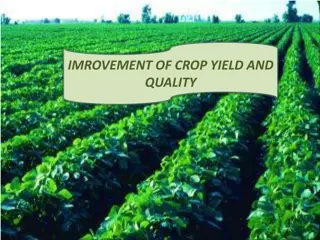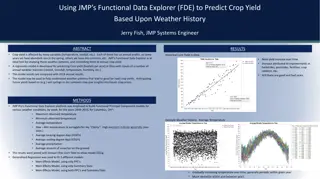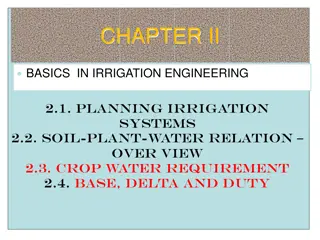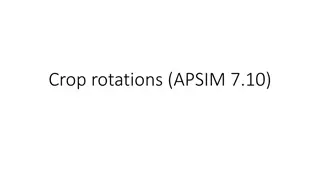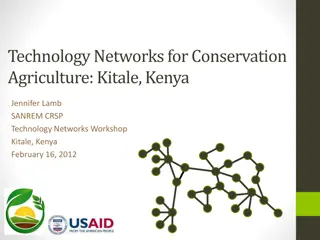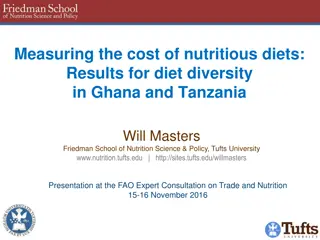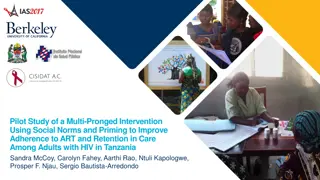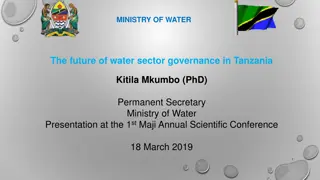Sustainable Crop-Livestock Integration Case Study in Tanzania
Assessing and improving crop-livestock systems for sustainable intensification pathways in Tanzanian farming through case studies like Moshi Maile farm in Kongwa. The farm utilizes various techniques including agroforestry, intercropping, and livestock rearing to enhance productivity and resilience while diversifying diets and income sources.
Download Presentation

Please find below an Image/Link to download the presentation.
The content on the website is provided AS IS for your information and personal use only. It may not be sold, licensed, or shared on other websites without obtaining consent from the author. Download presentation by click this link. If you encounter any issues during the download, it is possible that the publisher has removed the file from their server.
E N D
Presentation Transcript
Farm level systems case studies Lieven Claessens & cross-cutting team 28 September 2020
Output 1.1 Demand-driven, climate-smart, integrated crop-livestock research products (contextualized technologies) for improved productivity, diversified diets, and higher income piloted for specific typologies in target agro-ecologies [and scaled in Outcomes 4 and 5] Activity 1.1.1 Assess and iteratively improve crop-livestock systems Sub-activity 1.1.1.8 Explore, document and assess the sustainable intensification pathways of 3 farming system case studies in Tanzania to inform scaling potential. 3 farm level case studies in TZ Systems diagrams elaborated for 2 farms (Moshi Maile, Lukumai) HH survey completed (including 3 farms) Using data for 2 similar farms from the ARBES database to explore impact of AR technologies on vulnerability/resilience to shocks with FarmDESIGN
Moshi Maile farm, Mlali village, Kongwa - - - - - - - - - - 2km away Bought 2018 2 acres Fanya yu + Gliricidia Tied ridges with maize and pigeon pea Chororo pits 2000 Gliricidia seedlings Labour: household + collective action group Labour for seedlings: hired labour Oxen for land preparation - - - - 0.5km away Inherited 2 acres 2 plots: 0.5 acres for trees (gliricidia) - Labour: household + hired labour - Oxen for land preparation 1.5 acres maize pigeon peas Fanya yu + tied ridges (2019)
Moshi Maile farm, Mlali village, Kongwa - - - - - - - 3km away Rented 2 acres Maize pigeon pea intercropping Sunflower and sometimes millet Labour: household + hired labour Oxen & tractor - - - - - - - - - - 5 km away 3 acres Bought in 2012 Fanya yu + Gliricidia Tied ridges with maize and pigeon pea Chororo pits Guatemala grasses Cowpeas & peanuts Sometimes millet 0.25 acre for leafy vegetables (Chinese, amaranth, sweet potato, sukuma, cowpea (irrigation) Labour: household + hired labour for weeding -
Moshi Maile farm, Mlali village, Kongwa - - 2 pigs 120 improved chicken (different breeds, sasso, crawlers, cross breeds) 8 local chicken 8 guinea fowls Labour: father sourcing feed and repairing buildings, mother does feeding, 3 children no longer in the house Market: local customers, chicken market Mbande, Dodoma, Dar - - - - Pigs - - - - - - - - - Chicken - Maize grains (partly purchased) - Sunflower cake - Millet - Maize bran - Gliricidia leaves - Leafy vegetables - Bought: lime, bones, minerals, dried fish, blood - Manure to the fields (not on rented field), 7 carts, 4 for won fields, 3 sold - Eggs sold to local customers and Dodoma - Income used for chicken medicine, school fees, medical costs, clothes - Meat sold - Income to construct/improve chicken houses - Govt vet advices Maize bran Sunflower cake Leafy vegetables Bought Lime, bones Not consumed Vet Desinfecting Manure to the fields or sold Piglets (TZS 50k)
Moshi Maile farm, Mlali village, Kongwa - - - - Main house (water & electricity 2019) Pig stable Chicken stables Old house = store for food, feed and tools - Nutrition: ugali, rice, tea, milk, cassava, sweet potatoes, mandazi, beans, leafy veg, rarely meat (not chicken), hardly eggs - Inputs not from AR: pigs, sunflower, local vet, input dealers in Dodoma and Mlali for chicken not for crops AR: seeds, fertilizer, chicken medicine, pesticides, information - - Off farm income: baba =lead farmer, also working for NGO; mama: trading cashew nut seedlings
Trees - - - - - Groundnuts - Food - Soil fertility - Crop residue sold Wood for chicken house Branches for constructing terraces Pruned fire wood at home Sold for wooden carts Leaves of Gliricidia: soil fertility, chicken feed, windbreaks, avoiding runoff Sunflower - Food (oil) - Sunflower cake feed - Residue fuel given away - Sunflower head traded for cattle manure Maize - - - - Guatemala grasses - Soil erosion - Exchanged for manure or money Food Income Feed Crop residue partly sold, partly left in the field Pigeon pea - Food - Income - Soil fertility - Fuel wood for house or exchanged for manure/labour - Peels for cow/goat feed exchanged for manure Leafy vegetables - Food - Feed for chickens and pigs - Little sold - Market crops (pigeon pea, cowpea, maize, millet): Kibaigwa market Cowpeas - Income - Soil fertility - Leaves for food and feed and sold Moshi Maile farm, Mlali village, Kongwa
FarmDESIGN: - Explain/Evaluate/Explore - Parametrization - Baseline Current Future - Shocks & Resilience
Multiple objective optimization: - Operating profit + SOM balance + household leisure time - Introduce AR technologies and subject systems to shocks (drought, price) - Assess vulnerability and resilience Preliminary results: - Operating profit: African nightshade - SOM: maize-pigeon pea intercrop - Leisure time: sorghum-maize-pigeon pea intercrop
Way forward & points for discussion - Apply FarmDESIGN to proposed 3 farming systems cases? HH survey data collected to populate SIAF and systems diagrams but lacking baseline still a problem . - From recent HH survey, do we have enough info to cover human and social domains? - 3rd farm (Monica Pascale) still needs to be covered. - Opportunities with upcoming survey by IFPRI in TZ (impact) - Farming case studies in Malawi
Thank You Africa Research in Sustainable Intensification for the Next Generation africa-rising.net This presentation is licensed for use under the Creative Commons Attribution 4.0 International Licence.
